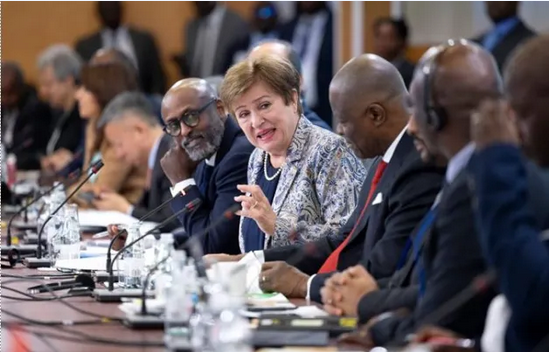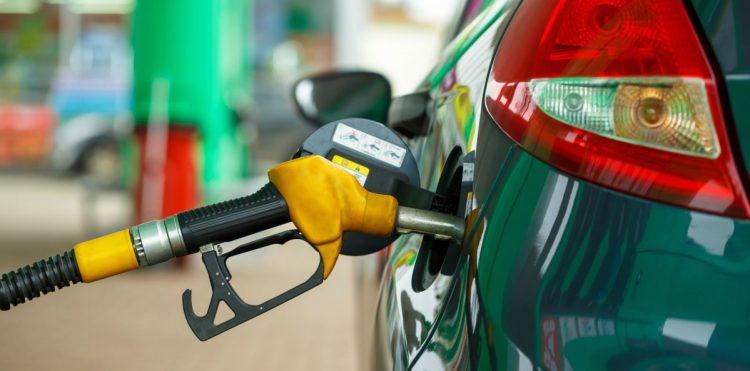Dr. Ernest Addison, the Governor of the Bank of Ghana, has emphasized the necessity for heightened private sector participation in the G20’s Common Framework for Debt Treatments.

During the October 2024 Africa Caucus Meeting with the Managing Director of the International Monetary Fund (IMF) at the IMF/World Bank meetings in Washington, D.C., Dr. Addison highlighted the importance of involving private creditors to expedite debt relief efforts and ensure fair treatment across all creditor groups.
“The Global Sovereign Debt Roundtable (GSDR) must facilitate prompt, just, and effective debt resolutions either under or outside the G20 Common Framework, prioritizing timely debt relief for the most vulnerable nations,” he stated. He further advocated for greater private sector engagement in the common framework to ensure equitable treatment and accelerate debt resolution initiatives.
Established in 2020, the G20 Common Framework aims to support low-income countries facing unsustainable debt burdens, particularly those worsened by the COVID-19 pandemic.
Although it has mainly focused on restructuring official debts owed to sovereign nations, private-sector creditors have been largely absent from this initiative.
Ghana recently completed its Eurobond debt exchange program, converting approximately $13 billion in Eurobonds into new bonds.
This initiative resulted in a 37% debt reduction, equating to $5 billion, and provided debt service relief of $4.3 billion from 2023 to 2026, alongside reducing interest rates from over 8% to below 5%. As a result, Ghana has restructured over 90% of its eligible external debt.
The success of the Eurobond exchange follows the earlier completion of the Domestic Debt Exchange Programme (DDEP) in 2023, which involved restructuring about GH¢203 billion of domestic debt and reaching an agreement with the Official Creditors Committee (OCC) to restructure around $5.1 billion of bilateral official debt.
Addressing Africa’s Debt Crisis
Africa is currently facing a significant debt crisis, with over half of sub-Saharan African nations either at high risk of debt distress or already experiencing it, according to the African Development Bank (AfDB). The AfDB estimates that Africa requires up to $170 billion annually for infrastructure, with a financing gap of around $108 billion. The increasing ratio of interest payments to revenue since the early 2010s has hindered investment in essential services.
Dr. Addison remarked that the pandemic, global inflation, and geopolitical tensions have intensified the crisis, pushing many African countries to the brink of fiscal instability. This situation underscores the urgent need for rapid and comprehensive debt restructuring to avert potential economic collapse in the region.
“Effective and timely debt resolution under or outside the G20 Common Framework is crucial for providing immediate relief to the most vulnerable nations,” he stressed. He noted that private sector participation is vital for achieving comparability of treatment—a principle ensuring equal treatment for all creditors during debt restructuring negotiations.
This principle aims to prevent scenarios where official creditors, like governments or multilateral institutions, offer debt relief while private creditors—such as commercial banks and bondholders—hold out for better terms or refuse to engage.
“African economies require a fair process that involves all creditors, including private ones, in finding solutions,” Dr. Addison asserted. He emphasized that including private creditors would not only foster fairness but also hasten the restructuring process, which is often slowed by prolonged negotiations and differing priorities among creditor groups.
Innovative Financing Solutions
In addition to advocating for private sector involvement, Dr. Addison proposed innovative financing mechanisms like debt-for-climate swaps, which could create mutually beneficial outcomes for all stakeholders.
These swaps enable countries to alleviate their debt burdens in exchange for commitments to climate-related initiatives, thereby addressing both fiscal and environmental challenges concurrently.
“Debt-for-climate swaps could effectively encourage private creditors to participate, especially as global focus shifts towards climate action,” Dr. Addison explained.
He highlighted that such mechanisms could also help African nations build resilience against climate change while mitigating their debt vulnerabilities.
























































![[FREE FREE MONEY] Predict and Win a Guaranteed GH¢200 From Us EVERY WEEK](https://wordpress.ghanatalksradio.com/wp-content/uploads/2022/02/Predict-and-Win-Final-09-03-2021-218x150.jpg)
![[Predict & Win – 8th/Oct.] WIN A Guaranteed ¢200 From Us This Week](https://wordpress.ghanatalksradio.com/wp-content/uploads/2021/10/maxresdefault-16-218x150.jpg)
![[Predict & Win – 2nd] WIN A Guaranteed ¢200 From Us This Week](https://wordpress.ghanatalksradio.com/wp-content/uploads/2021/09/maxresdefault-50-218x150.jpg)
![[Predict & Win – 25th] WIN A Guaranteed ¢200 From Us This Week](https://wordpress.ghanatalksradio.com/wp-content/uploads/2021/09/maxresdefault-36-218x150.jpg)
![[Predict & Win – 18th] WIN A Guaranteed ¢200 From Us This Week](https://wordpress.ghanatalksradio.com/wp-content/uploads/2021/09/maxresdefault-23-218x150.jpg)








![[National cathedral] See full list of churches that have contributed since 2018](https://wordpress.ghanatalksradio.com/wp-content/uploads/2020/09/Ghana-National-Cathedral-GhanaTalksRadio-100x70.jpg)



